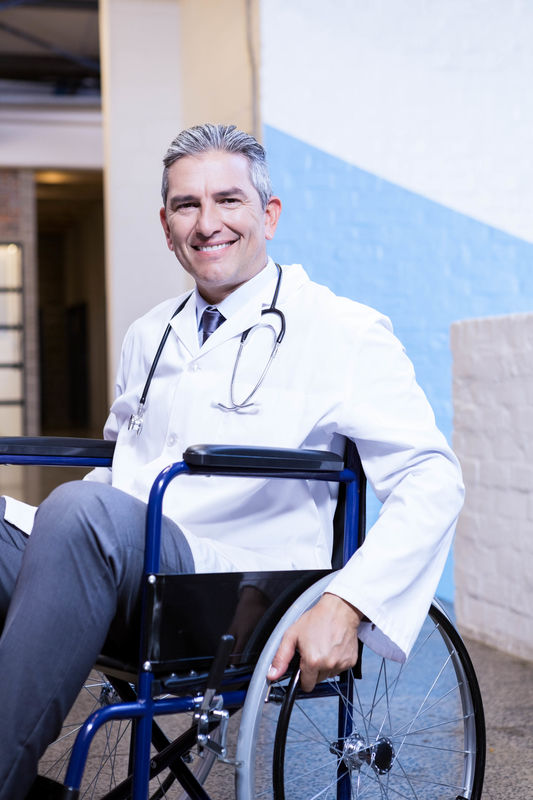The number of medical students who report having a disability rose 69 percent between 2016 and 2019, according to a new survey published this week in the Journal of the American Medical Association. Multiple factors may be at play, including “more applicants with disabilities being admitted to medical school, more existing students disclosing disability, better reporting of disability data, or increased development of psychological disability while attending medical school,” says co-author Lisa Meeks, PhD.
The study, conducted by the Association of American Medical Colleges (AAMC) and the University of California, San Francisco, School of Medicine (UCSF), is aimed at increasing awareness and understanding of the challenges and opportunities for individuals with disabilities at the nation’s medical schools and teaching hospitals.
Despite the surge, the sheer number of medical students with disclosed disabilities is relatively small – about 1,500, just 2.7 percent of the total number of enrolled students. But those students increasingly are getting the accommodations they need for a more equitable experience in medical school.
Among the experiences that medical students with disabilities face are physical barriers and a lack of knowledge or concern among faculty. One medical resident reported that it took nearly a year and a half for the facility where he was training to install an automatic door. When another student sought support, the schools disability representative allegedly was unfamiliar with the Americans with Disabilities Act. It’s no wonder that many students hide their disability out of a “fear of judgment, bias, and skewed perception of ability,” the report states.
“Learners need effective structures that sometimes are missing, such as clear policies around disabilities and knowledgeable disability service providers. But that is not enough,” said Dr. Meeks, who was on the faculty as director of medical student disability services at UCSF while the report was developed. “They also need a culture that lets them know they are welcome.”
Meeks and her co-authors make these recommendations for medical schools to better accommodate students with disabilities:
- Employ a disability services provider (DSP) or staff member who is knowledgeable about accommodations and other supports;
- Ensure that DSPs are trained in accommodations and other supports specific to medical settings;
- Have an outside expert conduct an assessment of existing services;
- Establish a clear process for requesting accommodations that does not involve disclosing sensitive personal information directly to a colleague, dean, or supervisor;
- Post on the institution’s website the policies and processes for requesting and accessing accommodations; and
- Encourage help-seeking behavior and offer time off for health appointments, including regular mental health appointments.
WOLFPACC supports efforts to create an equitable experience for everyone seeking a medical education. Contact us at 904-209-3140 to find out how we can help prepare you for medical school and your COMLEX and USMLE exams.





